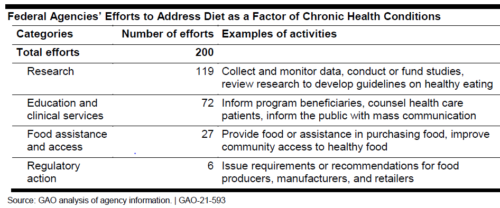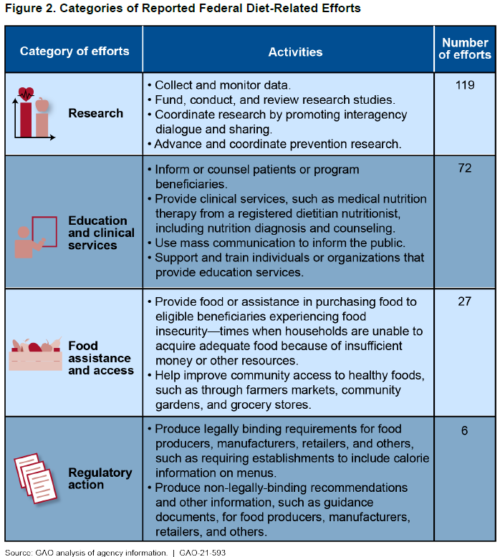I’m on the visionary panel. To register, click here.

Chronic (“noncommunicable”) diseases—heart disease, cancer, and diabetes—account for half of annual deaths in the United States at enormous physical and economic cost to individuals and to society. These conditions are related to diet; obesity is a risk factor for all three.
Despite the widespread prevalence of obesity (the CDC says 73.6% of American adults are overweight or severely overweight) and its associated chronic conditions, no concerted government effort is aimed at prevention.
This is also true on the international level. The UN’s Sustainable Development Goals barely mention reduction of noncommunicable diseases. You have to go to the fourth sub-goal of SDG 3, Good Health and Well-Being, to find:
By 2030, reduce by one third premature mortality from non-communicable disaeases through prevention and treatment and promote mental health and well-being.
Why is so little attention focused on diet-related conditions? To prevent them, people have to eat more of healthier foods and less of unhealthier foods—public health measures strongly opposed by the food industry. [For detailed evidence on this point, see Swinburn BA, et al. The Global Syndemic of Obesity, Undernutrition, and Climate Change: The Lancet Commission report. Lancet. 2019;393:791-846].
Representatives Rosa DeLauro and Tim Ryan have the same question. They asked the Government Accountability Office (GAO) to look into government efforts to prevent chronic disease.
The result: Chronic Health Conditions:Federal Strategy Needed to Coordinate Diet-Related Efforts.
It’s not that the US government ignores chronic disease; on the contrary. The GAO identified an astounding 200 federal efforts to reduce these conditions—but fragmented among an even more astounding 21 federal agencies.
 Most of these are focused on research.
Most of these are focused on research.

These programs are all over the place, and nobody is in charge.
Agency Officials Say They Lack Authority to Lead a Federal Strategy on Diet: Despite their support for a federal strategy to coordinate diet-related efforts, no agency officials we interviewed asserted that their agencies had the authority to lead a federal strategy that would have reasonable assurance of being sustained across administrations. Officials from six agencies said they would not have the authority, and officials from the remaining 10 agencies said they did not know or were not in a position to comment. Some officials stated that they would have the authority to lead a strategy for their agency alone but not for the entire federal government.
The GAO came to the obvious conclusion.
Congress should consider identifying and directing a federal entity to lead the development and implementation of a federal strategy to coordinate diet-related efforts that aim to reduce Americans’ risk of chronic health conditions. The strategy could incorporate elements from the 2011 National Prevention Strategy and should address outcomes and accountability, resources, and leadership.
Leadership! Here’s my list.
This will take courage. Hence: Leadership.